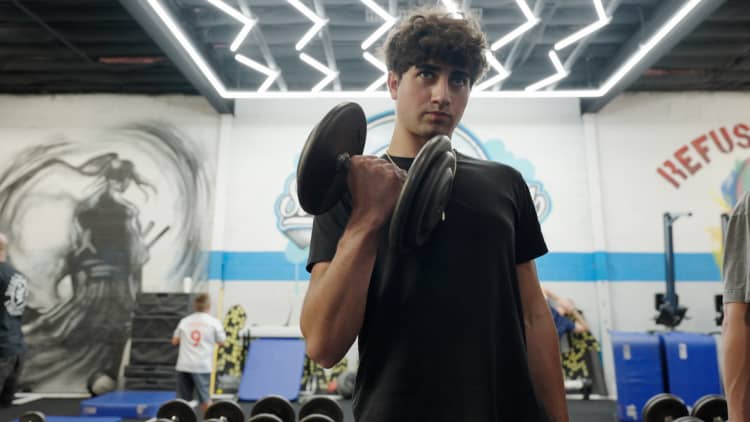Four-time Grand Slam champion Naomi Osaka has played tennis professionally since age 14. On September 4, she lost a Grand Slam semifinal match for the first time in her career — and her response to losing was surprisingly upbeat.
“Honestly, I don’t feel sad,” Osaka, 27, said during a press conference after her loss. “I just feel like I did the best that I could … It’s kind of inspiring for me, because I just want to train and try to get better.” She added: “I can’t be mad or upset at myself … Hopefully, I can be in this position one more time and see if I learned something.”
Osaka has, very publicly, spent years developing her competitive mindset and describing the mental and emotional rigors of high-level competition. After winning her second Grand Slam event, the 2019 Australian Open, she started taking her losses much harder, she told Fast Company in November 2019.
“If I lost a match, it became news everywhere, and I would pay more attention to my losses. They were harder to get over,” said Osaka. “Sometimes, I got depressed during practices and [felt] like there were a lot of expectations on me. I started to question my ability, which I had never really done before.”
DON’T MISS: The ultimate guide to starting a business—everything you need to know to be your own boss
At the time, she said she was trying to focus on being grateful for her success, and learning from each match “instead of focusing on the result.” Ultimately, Osaka took a break from the sport during the 2021 French Open for her mental health, returning to competition in January 2022.
Viewing setbacks as opportunities to grow and obtain new skills is a mindset that many highly successful people share, according to Laurie Santos, a psychology professor at Yale University and podcast host of “The Happiness Lab.”
“We forget failure really is a path to success,” Santos told CNBC Make It in March 2023. “We need to have much more of a growth mindset about failure.”
Anyone can “reframe” their failures and use them as motivation by learning how to separate the emotions around them from the lessons they can teach you, psychologist Jenny Wang wrote in May 2022. “The most successful people reframe failure by facing their shame, recognizing how it plays into a fear-based fixed mindset, and working to develop a growth mindset,” wrote Wang.
The more you practice your ability to view setbacks as learning opportunities, “the more fluid your encounters with failure will be,” she added.
Want to be your own boss? Sign up for Smarter by CNBC Make It’s new online course, How To Start A Business: For First-Time Founders. Find step-by-step guidance for launching your first business, from testing your idea to growing your revenue. Sign up today with coupon code EARLYBIRD for an introductory discount of 30% off the regular course price of $127 (plus tax). Offer valid September 16 through September 30, 2025.
Plus, sign up for CNBC Make It’s newsletter to get tips and tricks for success at work, with money and in life, and request to join our exclusive community on LinkedIn to connect with experts and peers.



AloJapan.com